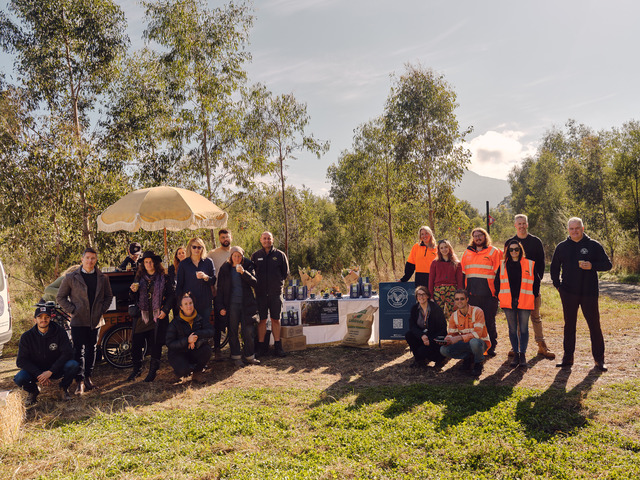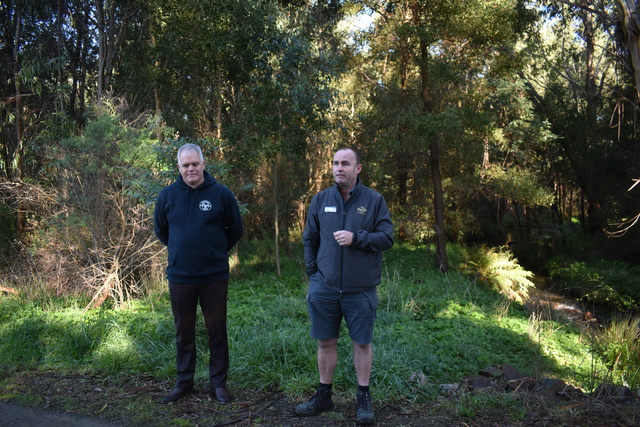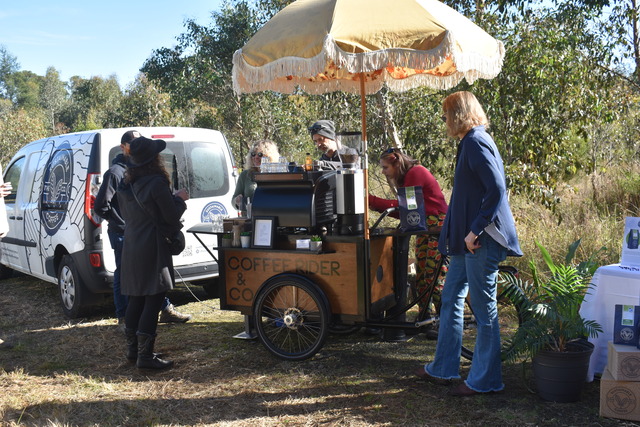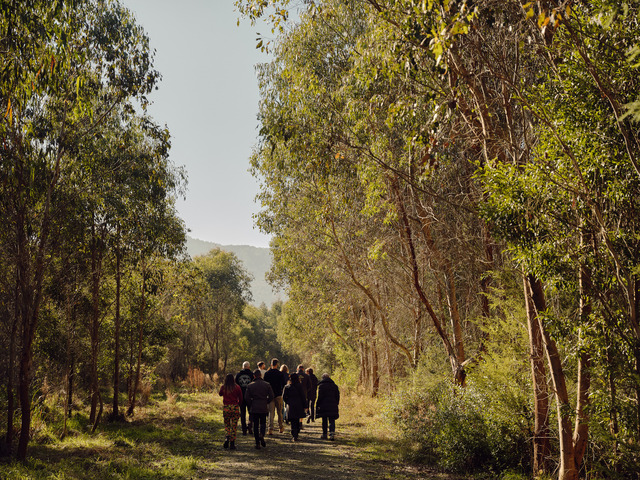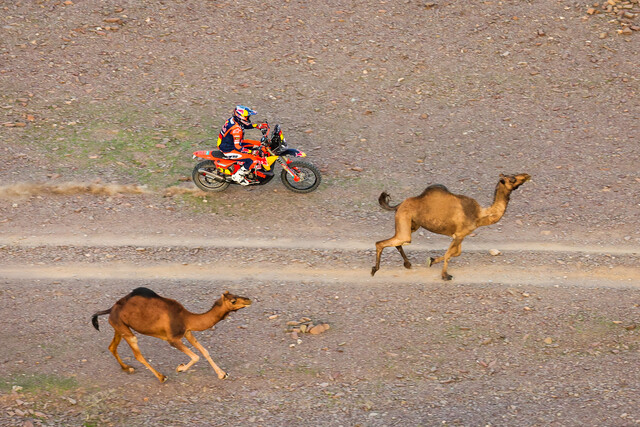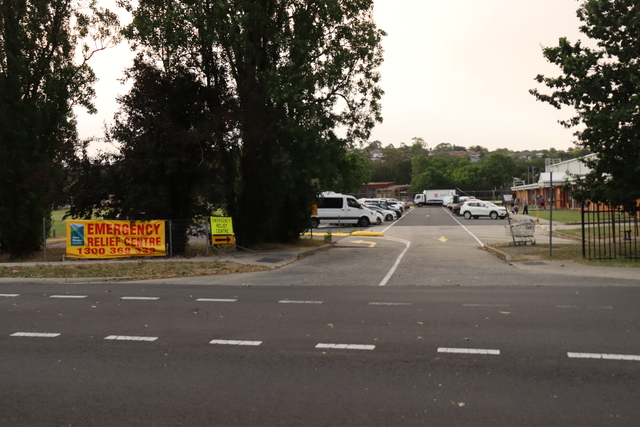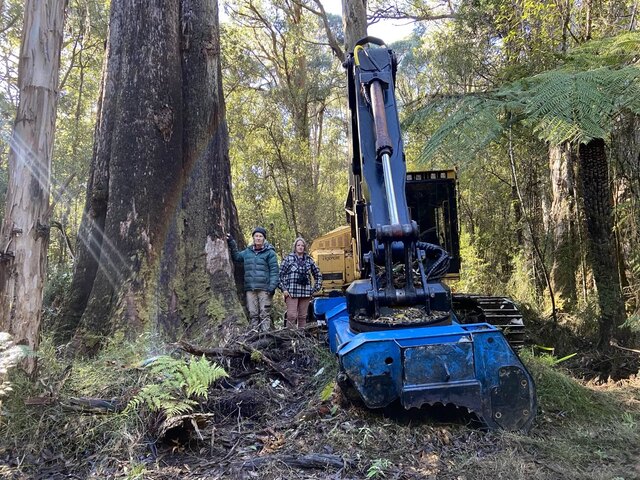A new partnership is helping to replenish Haining Farm through something as simple as your morning cup of coffee.
The Sustainable Coffee Company, Australian Ecosystems and Parks Victoria have come together, with every kilo of Coffee for Nature sold set to help fund replanting efforts in the former dairy farm turned conservation site.
Director of The Sustainable Coffee Company Brendan Condon said he thinks it is a brilliant partnership because it means that this biodiversity restoration has security of tenure and is going to be protected in perpetuity.
“What we’re now doing with the Coffee for Nature program is trying to harness the collective energy of Melbourne’s coffee lovers by directing and embedding biodiversity in that supply chain by launching what we think is Australia’s most sustainable coffee,” he said.
“I think it’s (Haining Farm) a great example of the rebound capacity of the natural world if we work sympathetically with it and if we change the land use and manage land for nature.”
The conservation efforts at Haining Farm are complementary to the Yellingbo Nature Conservation Area, with the goal of establishing the area as another new habitat for the state’s faunal emblems, the Helmeted Honeyeater and lowland Leadbeater’s Possum.
Parks Victoria’s Area Chief Ranger covering the Upper Yarra Conrad Annal said through federal funding and state funding, and a lot of work and planning with partner agencies, they have been able to redevelop the site from a dairy farm to a conservation area.
“It was strong advocacy from the community to have some public access, so that’s why it has a series of tracks throughout the park and one of the big motivations or ambitions was to have an area for conservation, particularly for the lowland Leadbeater’s Possum and Helmeted Honeyeater which are critically endangered,” he said.
“The habitat we’re creating is called a camphora eucalyptus swamp as that’s what those two species particularly need which we started planting in 2018, but before we did that we had to get the infrastructure in place.”
Wetlands were created and are maintained with the Don River which follows through the park, with bridges built and pumps installed so the water flow can be regulated by pumping water into the Don River and releasing it.
The Victorian Environment Assessment Council (VEAC) had recommended that Haining Farm became a community-use area that also helped to revegetate floodplain forest habitat in the Upper Yarra in 2013 and since planting began in 2018, 42 hectares have been revegetated, a track network built and a deer-proof fence installed (which is set for an upgrade to help keep out other predators like foxes and cats).
Mr Annal said time will tell how the Haining Farm project has gone when they are able to release the critters.
“But to see how well the trees are doing, they’re four to six years old, is great, I guess when you’ve got 100 years of farming with fertiliser and cow manure that helps but I’ve never seen any revegetation that’s done as well as this has,” he said.
“With some of our partner agencies, we are doing a bit of monitoring, we’ve got a lot of cameras, and if you go for a walk you’ll see little posts that have got wildlife monitoring cameras in them and we’ve already seen quails, goshawks, sugar gliders, feathertail gliders and a whole range of bird life.”
The presence of sugar gliders is a particularly positive development, as they require similar conditions to the lowland Leadbeater’s Possum and Helmeted Honeyeater, which bodes well for the use of the site as a critical habitat.
Mr Condon said there’s a range of reasons the faunal emblems have lost habitat but the plan is that the animals are re-released, and that they’ve got the best chance of flourishing at Haining Farm.
“They can live on riparian zones where it’s rich country and was cleared probably 100 years ago and swamps were drained, so all they’ve got are these little pockets, like Yellingbo (Nature Conservation Area) where they’re hanging on by their fingertips,” he said.
“They tend to hang out in the same areas and I was reading that the lowland Leadbeater’s possum will scratch the bark off a eucalyptus and that exudes a sap or a carbohydrate that the Helmeted Honeyeater come and feed from, so they’re even helping each other out and giving each other a leg up.”
Funding raised by Coffee for Nature will help purchase plants identified by Parks Victoria as underrepresented in Haining Farm, as well as organise seed collection and community planting days at the site.
The Sustainable Coffee Company sources its’ Coffee for Nature green beans from Brazil’s Bom Jesus Coffee Farm which was Brazil’s Most Sustainable Coffee Farm for 2023. The coffee also scores 87 out of 100 in the Specialty Coffee Association’s coffee cupping score rating system, where coffees with a score over 80 can be considered ‘specialty’.
According to Visit Victoria, Melbourne imports 30 tonnes of coffee per day on average.
“I did some maths this morning on the way here, that’s 11 million kilos a year,” Mr Condon said.
“I worked out that if we could get 10 per cent of Melbourne’s coffee consumers to participate in a Coffee for Nature-type program, then we could be planting three Haining Farms of forest a year, just with 10 per cent of our coffee habit.”

